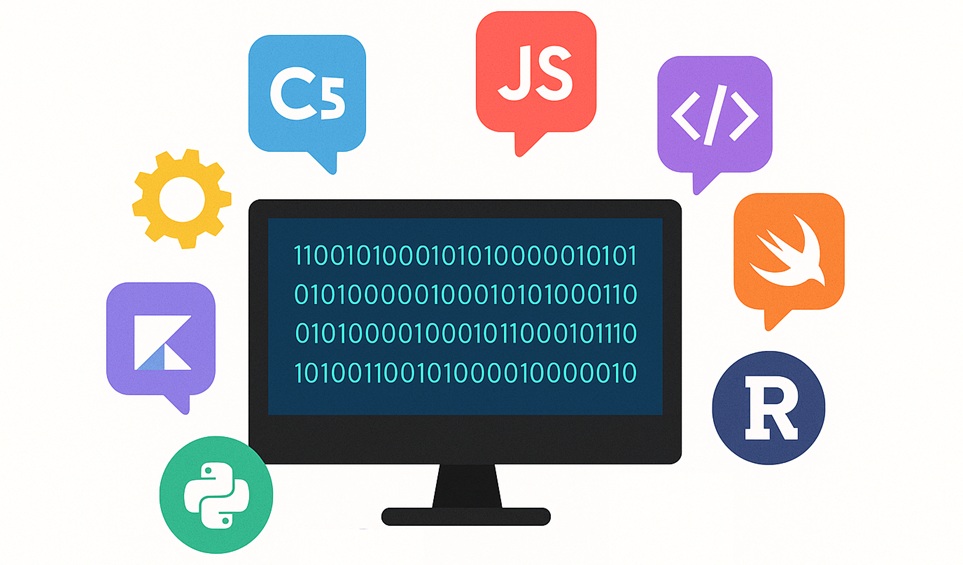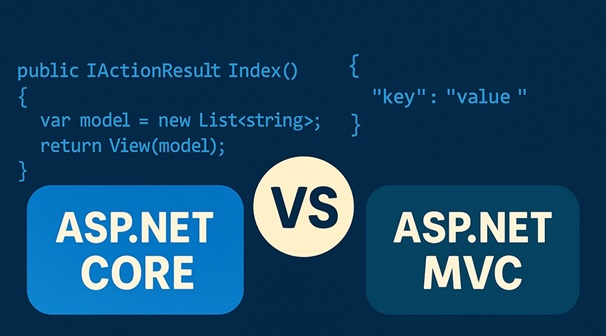When Businesses Outgrow Traditional Outsourcing
Most companies begin with short-term outsourcing - hiring freelancers or small agencies to handle a few sprints, a landing page, or an MVP. It works fine, until it doesn’t.
Sooner or later, growth demands consistency: the same engineers maintaining code quality over months, the same PM understanding product logic, and a team that doesn’t vanish after release. That’s when a dedicated development team becomes not just an option, but a necessity.
At TwinCore, we treat dedicated teams as long-term extensions of your business. You get a complete engineering unit - developers, QA, DevOps, UI/UX, and a project manager - that works exclusively on your product. They’re not freelancers juggling five projects. They’re your team, aligned with your roadmap, your tools, and your sprint rhythm.
Unlike traditional outsourcing, where communication often feels transactional, our dedicated teams integrate into your daily workflows. We share your Slack channels, use your Jira board, and report as part of your organization. You control direction; we handle execution, delivery, and stability.
What Is a Dedicated Software Development Team?
A dedicated development team is a partnership model where a vendor provides a self-managed group of software specialists that works full-time on one client’s project. The team functions like an in-house department but without the overhead of hiring, HR, or infrastructure.
At TwinCore, we tailor each team’s composition to your exact needs - from a small squad for MVP validation to a large-scale cross-functional team for enterprise-level systems. Every member is pre-vetted, experienced in remote collaboration, and technically aligned with your stack (most of our projects run on .NET, Node.js, React, and Azure).
This model is ideal when you need full focus, technical depth, and predictability. The team works exclusively on your backlog, follows your coding standards, and communicates directly with your internal leads. There’s no multitasking between clients, no context-switching chaos, and no “outsourced black box” where you can’t see what’s happening.
Dedicated teams act as your engineers, not someone else’s contractors. They understand your long-term business objectives, build reusable architecture, and evolve alongside your roadmap. That’s the difference between code delivery and true product partnership.
Why Companies Choose Dedicated Teams
3.1. Deep Integration and Minimal Friction
The biggest pain point in outsourcing is friction - delays, handovers, misunderstandings. TwinCore eliminates that through full integration. We adopt your tools (Slack, Teams, Jira), follow your deployment routines, and participate in your agile ceremonies. The result: your external engineers function exactly like your in-house team, only faster and easier to scale.
3.2. Predictable Delivery, Less Management Stress
Every TwinCore team includes a Project Manager or Scrum Master who handles sprint planning, task prioritization, and risk management. You don’t have to attend every stand-up or chase deadlines - you get structured reports, demo sessions, and performance metrics. Our PMs act as a single point of contact, keeping the roadmap clear and the feedback loop short.
3.3. Cost Efficiency Without Compromise
Hiring full-time developers means covering recruitment, onboarding, benefits, hardware, and retention. With TwinCore, all of that is included in a single transparent rate. You pay for the team, not the bureaucracy. Because our engineering centers operate across Europe and North America, we can balance costs and seniority, offering optimal value without sacrificing quality or time zone alignment.
3.4. Accelerated Time-to-Market
When time defines competitiveness, waiting months for recruitment isn’t an option. TwinCore’s dedicated teams are ready to integrate within weeks. We provide pre-assembled engineers with production-ready toolchains - CI/CD pipelines, monitoring stacks, and DevOps processes already in place. That means development starts immediately, feedback cycles are shorter, and releases go live sooner.
3.5. Focus, Ownership, and Code Quality
Our dedicated teams work on one thing only: your product. There’s no parallel workload from other clients, no task fragmentation. Engineers can dive deep into your architecture, refactor legacy code, and build scalable modules without distraction. That focus naturally leads to cleaner commits, faster bug fixes, and stronger long-term maintainability.
3.6. Scalability and Flexibility
Need to scale from 3 to 10 developers? Or add a DevOps specialist mid-project? With TwinCore, you can adjust your team structure seamlessly. We maintain a pool of pre-vetted specialists - backend, frontend, QA, designers, analysts - allowing quick scale-ups without breaking momentum. Contracts stay flexible, but delivery stays stable.
3.7. Risk Management and Continuity
Team member leaves mid-sprint? Your project won’t stall.
We maintain comprehensive documentation, Git access policies, and knowledge transfer protocols. Our internal resource bench ensures quick replacement with engineers already familiar with your project’s domain.
This built-in redundancy means less stress, no downtime, and steady progress even through turnover or vacations.
Who Makes Up a TwinCore Dedicated Team
A great team is more than just good coders. It’s a mix of roles that complement each other - from product vision to code deployment. Each TwinCore team includes key specialists for full lifecycle development.
Project Manager / Scrum Master
Responsible for sprint coordination, backlog alignment, and stakeholder communication. They ensure clarity, visibility, and on-time delivery while freeing your leadership from day-to-day operations.
Tech Lead / Solution Architect
Defines system architecture, integration logic, and code standards. Balances technical decisions with business goals. Works closely with developers and DevOps to maintain long-term scalability.
Developers
The engine of the team. Frontend engineers (React, Next.js, TypeScript) focus on intuitive user experiences, while backend engineers (.NET, Node.js, Python) handle APIs, microservices, and data workflows.
Full-stack developers often bridge the two, ensuring faster iteration between UI and logic layers.
QA Engineers
Quality assurance is built-in, not outsourced. Our QA specialists design automated test pipelines, regression tests, and load scenarios within CI/CD. Their goal: every release is stable, monitored, and production-ready.
DevOps Engineers
They connect development with operations - automating deployments, monitoring infrastructure, and ensuring reliability. TwinCore’s DevOps experts manage Kubernetes, Docker, Azure Pipelines, and GitHub Actions, maintaining 24/7 uptime and streamlined rollouts.
UI/UX Designers
Focus on usability, accessibility, and visual clarity. They collaborate directly with PMs and BAs to translate requirements into intuitive designs. TwinCore’s designers specialize in enterprise-level UX - where aesthetics meet functionality.
Business Analysts
Act as translators between your product vision and the development process. They document requirements, define KPIs, and ensure every sprint aligns with real business impact. In long-term partnerships, analysts often evolve into product co-owners.
Each role is chosen based on project goals - we never oversell or overload a team with unnecessary specialists. Efficiency and accountability come first.
When to Choose a Dedicated Team Model
The dedicated model works best when your product demands continuity, technical expertise, and scalability. Below are scenarios where TwinCore clients see the strongest impact.
Long-Term Software Development
If you’re building a logistics platform, SaaS product, or ERP system, short-term contractors won’t cut it. You need engineers who understand your architecture deeply and maintain it over time.
Startups and MVPs
Speed and adaptability are crucial for startups. With TwinCore, founders can launch MVPs faster, test hypotheses, and iterate without losing time to recruiting or onboarding.
Scaling an Existing In-House Team
Sometimes your core developers are overloaded, but you don’t want to dilute company culture. A TwinCore dedicated team extends your capacity, working under your methodology and integrating into your daily workflows.
Projects with Changing Requirements
Markets shift, features evolve. Dedicated teams adapt in real-time, scaling up or down without renegotiating contracts.
Access to Niche Expertise
If your in-house team lacks DevOps, cloud, or data engineering expertise, TwinCore plugs in the missing roles instantly - from Azure cloud architects to machine learning engineers.
How to Hire a Dedicated Team with TwinCore
Hiring a dedicated development team shouldn’t feel like a gamble. It’s a structured process that defines your long-term success. TwinCore uses a transparent onboarding flow that minimizes risk and ensures both sides are fully aligned before the first sprint.
Step 1 - Define Scope and Tech Requirements
Before we talk headcount or rates, we define what you actually need.
Our architects help refine your business goals, outline the tech stack, and create a roadmap. Whether it’s .NET microservices, a React front end, or a cloud-native logistics platform, we document all requirements upfront to avoid scope ambiguity later.
Step 2 - Team Composition and Candidate Selection
Once the scope is clear, we propose an initial team structure - for instance, two back-end engineers, one front-end, one QA, a DevOps specialist, and a PM.
You review CVs, meet the candidates, and conduct short technical interviews if needed.
No surprises - you see exactly who’s joining your project and why they were chosen.
Step 3 - Trial Sprint
To ensure compatibility, TwinCore offers a trial phase (2–4 weeks).
During this sprint, the team integrates into your workflow, delivers real tasks, and reports daily progress. You assess communication, productivity, and technical quality before committing long-term.
If the match feels right, the collaboration scales seamlessly from there.
Step 4 - Onboarding and Integration
After confirmation, we fully embed the team into your environment:
- Access to your repositories and project management tools
- Alignment with your CI/CD pipelines
- Slack/Teams channels for direct communication
- Security onboarding and credential management
Our teams adapt to your preferred methodology - Scrum, Kanban, or hybrid - and sync calendars to ensure smooth cross-time-zone collaboration.
Step 5 - Continuous Reporting and Metrics
You can’t manage what you don’t measure. That’s why TwinCore tracks and shares performance indicators such as sprint velocity, delivery accuracy, bug count, and code review metrics.
Weekly reports, retrospectives, and demo sessions keep you informed without micromanaging.
Step 6 - Scale and Optimize
As the product evolves, we revisit team composition quarterly. Need more DevOps capacity or an extra front-end developer for a redesign? Scaling up or down takes days, not months.
Transparency and Communication: The TwinCore Standard
We’ve seen too many projects collapse not because of poor code, but because of poor communication. TwinCore operates on a no surprises principle.
Every dedicated team we deploy works in full visibility:
- You get access to Jira boards and Git repositories.
- All sprint reviews are open, documented, and recorded.
- Every commit, merge, and deployment is traceable.
- Every risk or delay is reported before it becomes a problem.
Communication happens daily through Slack or Microsoft Teams, with stand-ups and async updates depending on your time zone. Weekly demos showcase tangible progress, and monthly retrospectives focus on improvement, not blame.
The end result? A process that feels internal, not outsourced.
Red Flags When Choosing a Vendor
Selecting the wrong partner can cost months of progress. Over the years, we’ve seen the same warning signs repeat themselves - and we design TwinCore’s processes to be their opposite.
1. “Yes-Teams.”
If a vendor agrees to every deadline or idea without pushback, they’re not partners - they’re salespeople. TwinCore engineers challenge unrealistic expectations and suggest better solutions. Honest feedback is how good software gets built.
2. Hidden Costs.
Cheap rates often mask expensive surprises: unbilled overtime, add-on management fees, or underqualified juniors. TwinCore pricing is all-inclusive - one flat rate per specialist, with no hidden extras.
3. Poor Process Transparency.
If you can’t see your backlog, builds, or test coverage, you’re flying blind. Our teams work in your systems or mirror them 1:1 - everything is documented and open.
4. High Turnover.
Constant staff rotation kills productivity. TwinCore retains engineers long-term, backed by fair pay, training programs, and strong internal culture. Every project also has internal backups for key roles to ensure stability.
5. Communication Delays.
Silence is never acceptable. Our teams operate in overlapping time zones with guaranteed response windows.
What Influences the Cost of a Dedicated Team
Every dedicated team is different - so is its pricing. Here’s what truly affects the cost of your setup:
Team Composition and Seniority
A two-person MVP team with mid-level engineers will cost less than a ten-person squad with senior DevOps and architects. We design teams that fit exactly what your roadmap requires - no bloat, no unnecessary hires.
Duration of Engagement
The longer the partnership, the more cost-efficient it becomes. TwinCore offers discounted rates for contracts beyond six months because stable collaboration means fewer onboarding cycles and smoother performance.
Complexity of the Product
A SaaS analytics platform with heavy data processing, real-time dashboards, and API integrations will naturally require more expertise - and more QA and DevOps capacity - than a simple eCommerce site.
Technology Stack
Highly specialized skills (for example, AI/ML or advanced cloud orchestration) influence rates. TwinCore’s teams cover most major stacks - .NET, Node.js, React, Python, Azure, and AWS - ensuring flexibility within predictable cost brackets.
Location and Time Zone
Teams in Eastern Europe provide excellent cost-to-skill balance and solid English proficiency while staying within easy communication hours for EU and US clients.
Project Management and QA
Unlike many vendors who bill these separately, TwinCore includes PM, QA, and DevOps coordination in the base rate. You’re not paying extra for essential infrastructure - it’s part of the package.
Common Challenges - and How TwinCore Solves Them
Even the best teams face challenges. The difference lies in how they’re managed.
Challenge 1: Communication Across Time Zones
Remote work introduces gaps. TwinCore schedules overlapping hours and uses async reporting so nothing gets lost between updates. All documentation - requirements, user stories, sprint logs - is stored centrally.
Challenge 2: Scope Creep
Projects evolve, but uncontrolled changes can break budgets and deadlines. Our PMs maintain strict change management - new features are assessed, approved, and logged before being added to the sprint backlog.
Challenge 3: Technical Debt
Speed without structure leads to chaos. TwinCore integrates regular refactoring and code reviews into each cycle, keeping systems clean and scalable.
Challenge 4: Knowledge Transfer
Losing context between sprints is dangerous. That’s why every TwinCore project includes Confluence documentation, architecture diagrams, and onboarding materials. Every engineer can pick up where another left off.
Challenge 5: Maintaining Engagement Over Time
Long projects risk fatigue. We mitigate this through rotation within teams, quarterly innovation sessions, and shared success metrics. Engineers see the impact of their work - and that keeps motivation high.
Why TwinCore
TwinCore isn’t a staffing agency. We’re a software engineering company with a decade of experience delivering full-cycle development for logistics, SaaS, and enterprise clients.
What sets us apart:
- Core expertise in .NET, React, Node.js, and Azure ecosystems.
- Engineering teams in Europe and the US, ensuring timezone alignment.
- Strong DevOps culture - automated CI/CD, continuous monitoring, zero-downtime deployments.
- Emphasis on security and reliability (ISO-aligned data practices, encrypted pipelines).
- Transparent pricing, clear KPIs, and stable long-term teams.
We’ve helped startups launch MVPs in weeks and enterprise clients maintain multi-country SaaS platforms with millions of users. In every case, the architecture, team setup, and culture were built to last.
Building Software That Grows With You
A dedicated development team is not a cost center - it’s an investment in continuity and speed.
It replaces uncertainty with rhythm, chaos with structure, and fragmentation with focus.
With TwinCore, you get engineers who think like owners, not contractors.
They bring technical precision, transparent communication, and a shared commitment to your roadmap.
Your product deserves more than temporary hands. It deserves a team that stays.
Let’s build that team together - and make sure your software never stops growing.

 LinkedIn
LinkedIn
 Twitter
Twitter
 Facebook
Facebook
 Youtube
Youtube







